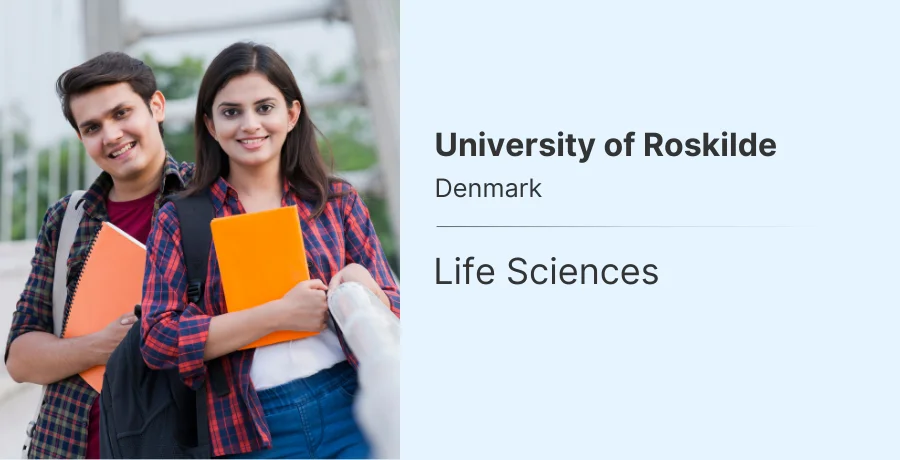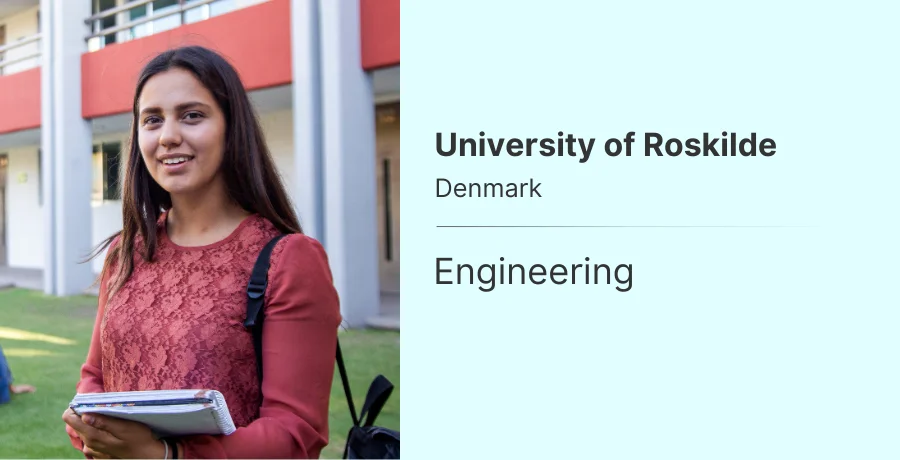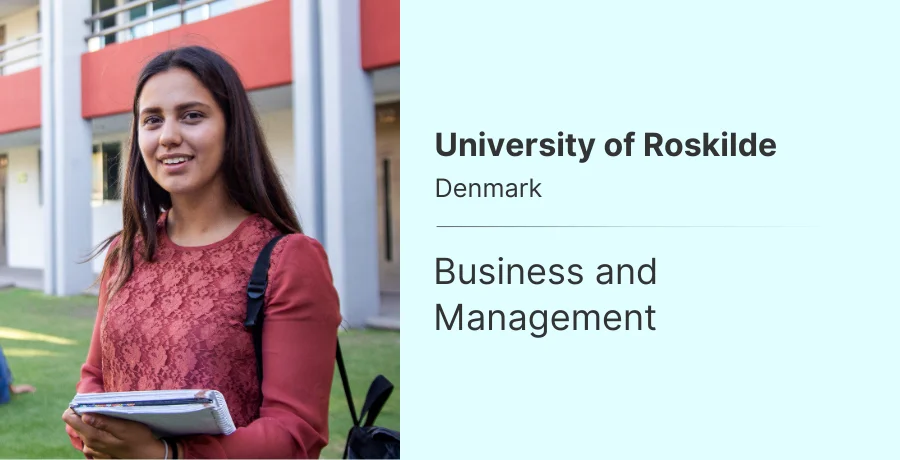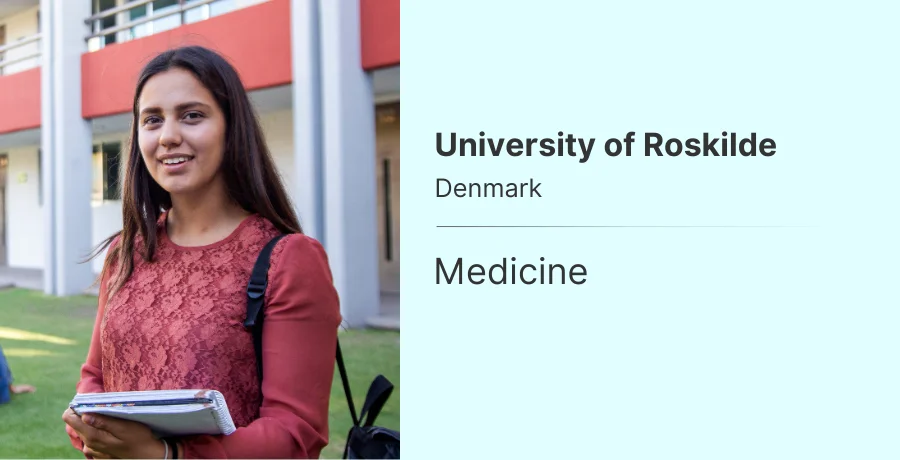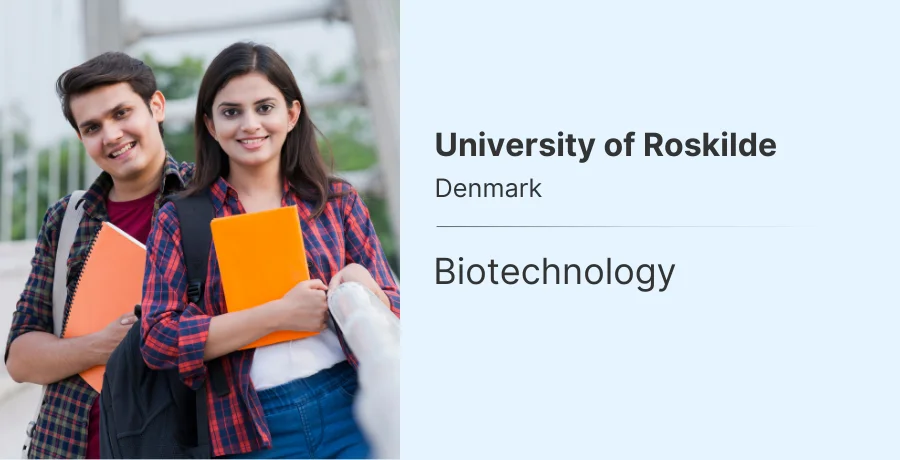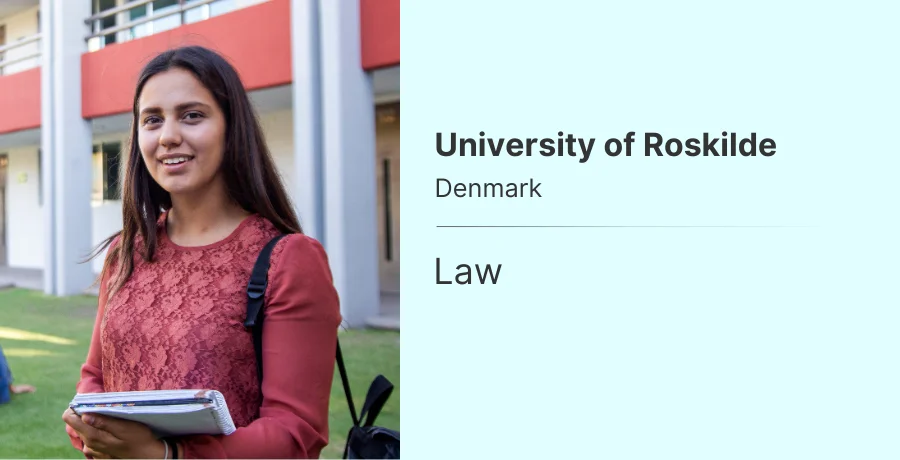Life Sciences at University of Copenhagen Denmark
Table of Contents
- Life Sciences at University of Copenhagen Denmark – Highlights
- Why Study Life Sciences at University of Copenhagen Denmark?
- University of Copenhagen Life Sciences Rankings
- University of Copenhagen Life Sciences Acceptance Rate
- Popular Life Sciences Courses at University of Copenhagen Denmark
- Admission Requirements to Life Sciences at University of Copenhagen Denmark
- Cost of Life Sciences at University of Copenhagen Denmark for Indian Students
- Scholarships at University of Copenhagen Denmark
- Job Prospects for Life Sciences at Denmark
- FAQs – Life Sciences at University of Copenhagen Denmark
Life Sciences at University of Copenhagen Denmark – Highlights
The Life Sciences course at the University of Copenhagen offers an immersive educational experience in one of the most vibrant cities in Europe. Known for its rich history and modern amenities, Copenhagen provides an excellent backdrop for academic pursuits. The course is designed to give students a comprehensive understanding of biological systems and their applications in various industries.
Students benefit from state-of-the-art facilities and access to leading researchers in the field. The program emphasizes both theoretical and practical knowledge, ensuring that graduates are well-prepared for careers in research, healthcare, and biotechnology. Living in Copenhagen also offers a unique cultural experience, with its blend of historical landmarks and contemporary lifestyle.
Why Study Life Sciences at University of Copenhagen Denmark?
The University of Copenhagen is renowned for its strong focus on research and academic excellence. The Life Sciences program is no exception, offering students the opportunity to learn from world-class faculty and engage in cutting-edge research projects. The program is interdisciplinary, combining elements of biology, chemistry, and medicine, providing a holistic approach to the study of life sciences.
- World-renowned faculty and researchers
- Interdisciplinary curriculum
- State-of-the-art research facilities
- Located in a vibrant and culturally rich city
University of Copenhagen Life Sciences Rankings
| Ranking Authority | Ranking |
|---|---|
| US News and World Report | Top 50 |
| QS World University Rankings | Top 40 |
| THE (Times Higher Education) Rankings | Top 30 |
| ARWU (Academic Ranking of World Universities) | Top 35 |
University of Copenhagen Life Sciences Acceptance Rate
- The acceptance rate for the Life Sciences program at the University of Copenhagen is competitive, reflecting its high standards and popularity.
- On average, the acceptance rate is around 20%, making it essential for applicants to have strong academic credentials.
Popular Life Sciences Courses at University of Copenhagen Denmark
- Top Bachelor's Programs:
- BSc in Biology: This program provides a solid foundation in biological sciences, covering areas such as genetics, ecology, and molecular biology.
- BSc in Biotechnology: Focuses on the application of biological systems in technology, preparing students for careers in biotech industries.
- Top Master's Programs:
- MSc in Molecular Biomedicine: Offers advanced knowledge in molecular and cellular biology, with a focus on medical applications.
- MSc in Agricultural Development: Combines biological sciences with agricultural practices to address global food security challenges.
Admission Requirements to Life Sciences at University of Copenhagen Denmark
The admission process for the Life Sciences program at the University of Copenhagen is rigorous, aimed at selecting the best candidates. Applicants need to demonstrate academic excellence and a strong interest in the field.
Entry Requirements:
-
- University of Copenhagen Life Sciences entrance exam
- University of Copenhagen Life Sciences entry requirements
Eligibility Criteria:
Applicants must have completed their secondary education or equivalent with a strong academic record.
Additionally, they should have a background in sciences, particularly biology and chemistry, to meet the program's prerequisites.
International applicants are required to demonstrate proficiency in English, as the medium of instruction for the course is English. This can be done through standardized tests like TOEFL or IELTS.
Documents Required:
- High school transcripts
- Proof of English proficiency
- Letters of recommendation
- Statement of purpose
- Passport-sized photographs
Proficiency Test:
Applicants need to provide proof of English language proficiency through tests like TOEFL, IELTS, or equivalent. A minimum score is required to qualify for admission.
Visa Process:
- Submit an online visa application
- Provide proof of acceptance into the University of Copenhagen
- Submit financial statements showing sufficient funds
- Attend a visa interview at the Danish consulate
Cost of Life Sciences at University of Copenhagen Denmark for Indian Students
Tuition Fees:
The tuition fee for the Life Sciences program at the University of Copenhagen ranges from €10,000 to €15,000 per year, depending on the specific course and level of study.
Cost of Living:
The estimated cost of living in Copenhagen for international students is around €800 to €1,200 per month, covering accommodation, food, transportation, and other personal expenses.
| Expense | Cost (EUR) |
|---|---|
| Tuition Fees | €10,000 - €15,000 per year |
| Accommodation | €400 - €600 per month |
| Food | €200 - €400 per month |
| Transportation | €50 - €100 per month |
Scholarships at University of Copenhagen Denmark
The University of Copenhagen offers various scholarships to international students to help cover tuition fees and living expenses.
-
- University of Copenhagen Scholarship: Provides partial or full tuition fee waivers for outstanding international students.
- Erasmus Mundus Scholarships: Available for specific programs, offering financial support for tuition fees, travel, and living expenses.
Job Prospects for Life Sciences in Denmark
Graduates of the Life Sciences program at the University of Copenhagen have excellent job prospects, with opportunities in research, healthcare, and biotechnology industries.
| Job Role | Average Salary (EUR) |
|---|---|
| Research Scientist | €50,000 - €70,000 per year |
| Biotechnologist | €45,000 - €65,000 per year |
| Healthcare Consultant | €40,000 - €60,000 per year |
FAQs – Life Sciences at University of Copenhagen Denmark
- Can I work while studying Life Sciences in Denmark?
Yes, international students are allowed to work part-time while studying in Denmark. The maximum allowed working hours are 20 hours per week during the semester and full-time during holidays.
- What are the advantages of studying Life Sciences at the University of Copenhagen?
The University of Copenhagen offers a high-quality education with world-renowned faculty, state-of-the-art research facilities, and a vibrant student life in a culturally rich city.
- What is the average salary for Life Sciences graduates?
The average salary for Life Sciences graduates varies depending on the job role, but it typically ranges from €40,000 to €70,000 per year.
- What is the duration of the Life Sciences programs?
The duration of the bachelor's programs is typically 3 years, while master's programs usually take 2 years to complete.
- What exams are required for admission?
Applicants need to provide proof of English proficiency through tests like TOEFL or IELTS. Additionally, some programs may require specific entrance exams.
- What are the popular Life Sciences courses at the University of Copenhagen?
Popular courses include BSc in Biology, BSc in Biotechnology, MSc in Molecular Biomedicine, and MSc in Agricultural Development.


